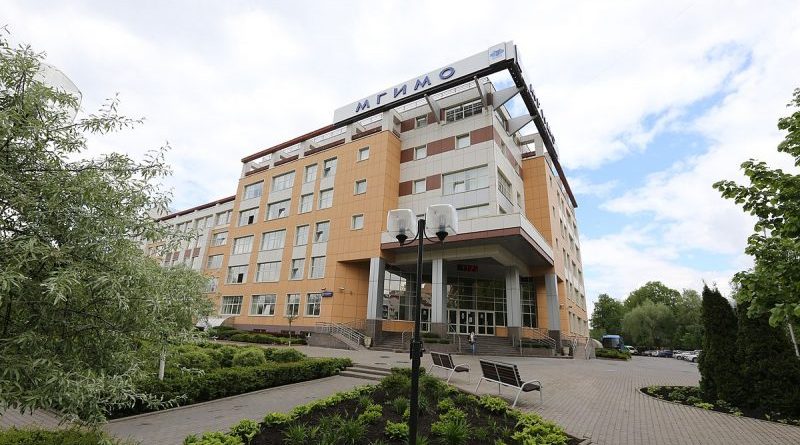Ryan Rogers Participates in MGIMO International Summer School Program
Ryan Rogers, MALD 2019 Candidate, The Fletcher School
As nearly one million soccer fans converged on Russia for the 2018 FIFA World Cup, I traveled to Moscow to take part in Moscow State Institute of International Relations’ (MGIMO) International Summer School. Entitled “Russian Foreign Policy: Modern Challenges,” the intensive seminar took place at the Odinstovo Branch of MGIMO, located in a Moscow suburb 25 kilometers from the Red Square, and provided a cohort of professionals and graduate students a wide-ranging survey of contemporary Russian foreign policy.
Professor Yuri Dubinin led a series of lectures examining the historical trajectory of Russian foreign policy since the end of the Cold War. Professor Dubinin emphasized Russian relations with countries in the post-Soviet space, and special attention was paid to the multilateral treaties which form the basis of these relations: the Commonwealth of Independent States (CIS), the Collective Security Treaty Organization (CSTO), the CIS Customs Union, and the evolving Eurasian Economic Union. Significant time was also dedicated to the examination of Russian relations with the U.S., NATO, the European Union, as well as a number of other important bilateral relationships in both Europe and Asia. By examining the major trends and turning points in each of these unique relationships, the effect of domestic politics and competing narratives among political elites on the direction of Russian foreign policy became more evident. These discussions were especially relevant as, at the same time, commentators and analysts sought to make sense of U.S. National Security Advisor John Bolton’s visit to the Kremlin in late June for preliminary discussions prior to a meeting between U.S. President Donald Trump and Russian President Vladimir Putin in mid-July in Helsinki.
Professor Dubinin’s broad overview of contemporary Russian foreign policy was supplemented by a number of different speakers. Professor Yan Vaslavskiy, who also serves as the head of the Department of Analytics and Expertise at the State Duma, provided a series of lectures on Russian domestic politics. Given his role in Russia’s lower house of parliament, his comments also proved extremely relevant; a delegation of US congressmen visited the Federation Council and State Duma from 30 June to 5 July to discuss the current state of U.S.-Russia relations, parliamentarian-to-parliamentarian. Professor Vaslavskiy’s exploration of the evolution in Russian domestic politics since the collapse of the Soviet Union provided an essential foundation to understand both the importance and context for the U.S. congressional delegation visit and Russian domestic politics, more broadly.
Finally, Maxim Samorukov, Deputy Director of the Carnegie Moscow Center, and Sergey Vasiliev, Director of MGIMO-University Odinstovo Branch, provided lectures on current foreign policy issues for the Russian Federation and the role of energy and energy diplomacy in the 21st century, respectively. Both lectures provided a level of depth and nuance that is essential in analyzing Russia’s current standing in the international system. Ultimately, the three-week seminar proved invaluable in terms of continuing to develop a deeper and more complete understanding of the drivers and motivators of Russian foreign policy- a task which is proving increasingly more difficult, but increasingly more important.

